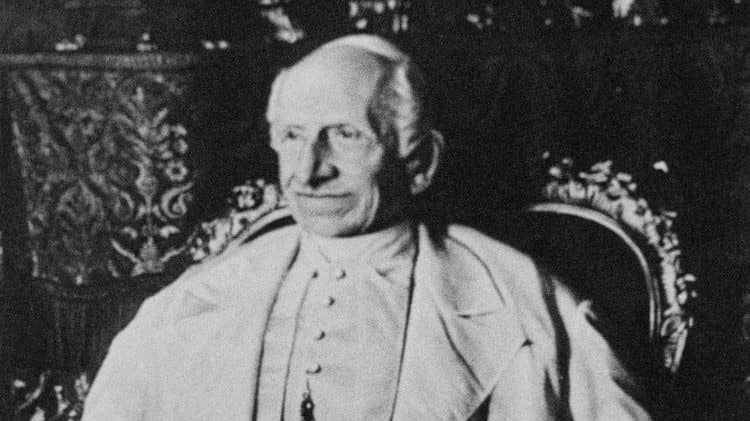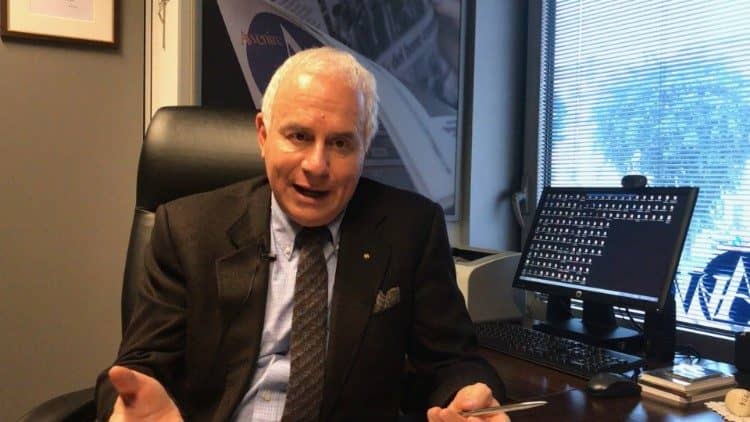ROME – Yesterday was the seventeenth anniversary of 9/11, an American tragedy with profound global implications, and it caught the leadership of the Catholic Church in a pensive mood – not about Islamic radicalism and the terrorist threat, but the Church’s own internal disaster in the form of the clerical sexual abuse scandals.
Archbishop Georg Gänswein, the closest aide to Pope emeritus Benedict XVI and also the Prefect of the Papal Household under Pope Francis, told a book presentation Tuesday that the abuse scandals are the Church’s “own 9/11,” though stressing he didn’t mean a direct comparison with the Twin Towers attacks.
Gänswein said the decades-long scandal showed just “how many souls have been wounded irrevocably and mortally by priests from the Catholic Church.”
“Today, even the Catholic Church looks full of confusion at its own 9-11, at its own Sept. 11, even though this catastrophe isn’t associated with a single date but rather so many days and years, and innumerable victims,” he said.
RELATED: Vatican official: Sex abuse scandal is Church’s “own 9/11”
Although a bit less on-the-nose in terms of any direct parallel, Francis in his morning homily on Tuesday at his Santa Marta residence reflected on how bishops ought to respond when the “Great Accuser” comes after them.
The pontiff said, it often seems like the devil, “the great accuser, has been let loose and he’s got it in for the bishops. True, there are, we are all sinners, we bishops.”
The great accuser “seeks to reveal sins, which people can see, in order to scandalize the people” of God, he said, counseling bishops that their role is to pray, be humble and remain close to the people.
RELATED: Satan is attacking bishops; they must fight with prayer, pope says
The devil, the pope said, “roams the world seeking how to blame. The strength of the bishop against the great accuser is prayer – his own and Jesus’, the humility to feel chosen and staying close to the people of God without heading toward an aristocratic life.”
The anguished vibe on this 9/11 anniversary is understandable, given everything that’s happened of late: The Pennsylvania grand jury report, scandals surrounding ex-Cardinal Theodore McCarrick, a tough papal trip to Ireland dominated by the abuse scandals, a bombshell accusation that Francis himself covered up for McCarrick despite a specific warning from his former ambassador in the U.S., that ambassador’s explicit call for the pope to resign, and now news that several other American states are convening their own grand juries along the lines of the Pennsylvania probe.
All of that – what Gänswein called Tuesday the “turbine of recent weeks” – leaves reaction to more routine news, such as a statement on Tuesday from the Archdiocese of Boston indicating an extern Nigerian priest has been suspended pending police investigation for a sexual assault on a child that allegedly happened in 2007, often just a sense of stunned incapacity to feel much of anything.
That’s an injustice to the suffering of the survivor involved, of course, assuming the alleged assault really took place. Actually, one might argue the pope’s emphasis on the hardships facing bishops, rather than survivors, is also insensitive. Yet given the enormity of everything’s that happened, it’s also understandable.
If Church leaders were to stay in this pensive mood for a bit and play out the comparison to 9/11, it might be worth considering whether, in either case, the institutions targeted have truly learned their lessons.
The Twin Towers attack was an assault on key symbols of American culture and power, and in the seventeen years since, it’s not entirely clear that America’s use of its power abroad after 9/11 always has contributed to a safer world. Infamously, the most immediate result was a war in Iraq seen as ill-advised at the time by both the Vatican and the Middle East’s Christian leadership, and which is recognized as such today by virtually everybody.
All analogies are inexact, but in a somewhat similar vein one could say that the anguish of the last couple of months is, similarly, an index of an institution that hasn’t quite understood why the crisis hasn’t gone away.
Most notably, more than two decades into the arc of the clerical abuse scandals, Catholicism still has not adopted the same robust system of accountability for the cover-up of child abuse as it has for the crime itself.
Over the last month, I and other members of the Crux team have been in Ireland, both north and south, and also Australia. Moving in and out of Catholic parishes in those places, what strikes the casual visitor upon entry is the prominence given to announcements of child safety polices, including a clear number to call and procedure to follow in case of suspicions of abuse.
There’s no companion hotline, however, if someone suspects his or her bishop has covered up an abuse allegation. There’s no clear procedure outlined to investigate such a charge and no indication of what sanction, if any, will be imposed should the accusation be confirmed.
Most experts on child protection, both secular and reformers inside the Church itself, will say that until that gap is plugged, it’s hard to imagine that the feeling of living through a slow-motion 9/11 is ever really going to lift.
More acts in this drama are set to unfold soon: The Vatican says it’s readying a “clarification” on the accusation against Francis made by Italian Archbishop Carlo Maria Viganò, the former papal ambassador, and on Sept. 13 the leadership of the American bishops will meet the pontiff to discuss a plan for investigating the McCarrick affair.
Obviously, the same angst underlying the comments from both Francis and Gänswein on Tuesday is also driving that activity. It will be interesting to track if it also jars loose a new determination to try to avoid feeling this way forever.

















